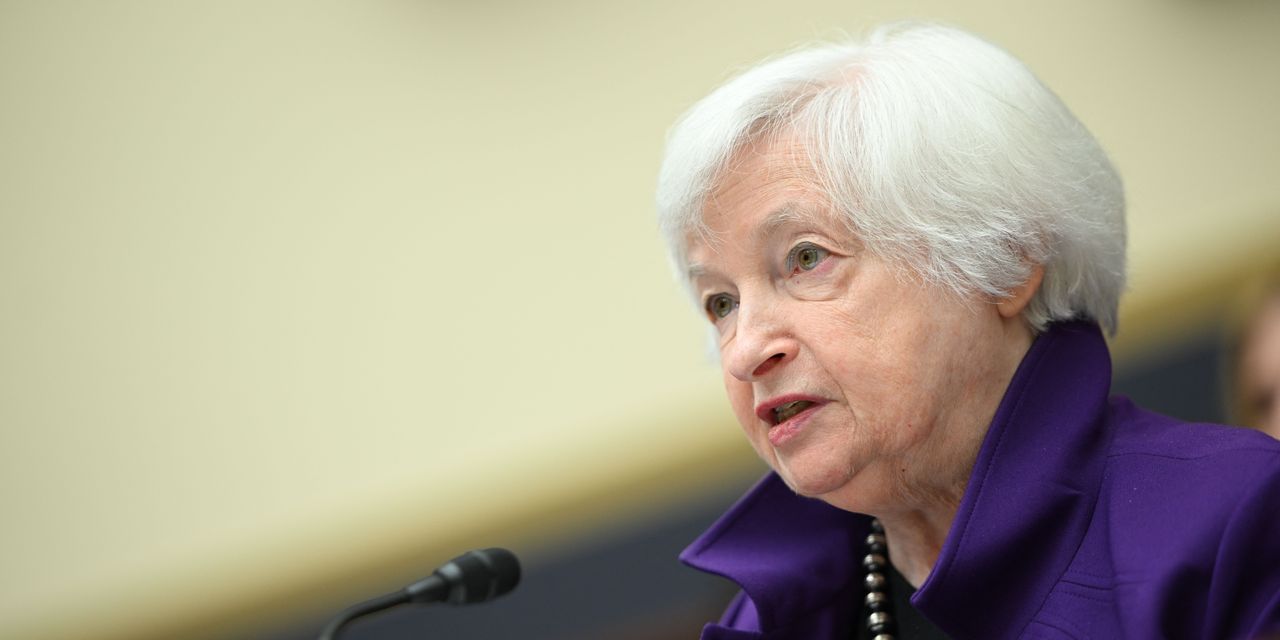Treasury Secretary Janet Yellen said Tuesday that economic partnerships between the U.S. and China should be preserved, although with safeguards, even as U.S. lawmakers have been seeking additional penalties and sanctions against China for actions deemed to be a security threat to the U.S.
Yellen made the comments in her annual appearance before the House Financial Services Committee to discuss the international financial system and seek continued authorization to participate in lending funds to developing countries. The conversation with lawmakers covered a number of international and domestic concerns, including growing Chinese influence over global trade and monetary policy, recent U.S. bank failures, and the U.S. debt ceiling.
In her written remarks, Yellen noted that investment in international financial institutions is a “core” way the U.S. engages with emerging markets and developing countries, and an “important counterweight” to China’s influence in the world.
Lawmakers noted issues with World Bank loan policies, particularly with regard to China, the world’s second-biggest economy. The World Bank has approved $9.6 billion in funding for Chinese projects since 2016, even though the Bank is set up to lend money to low- and middle-income countries, Rep. Blaine Luetkemeyer (R-Mo.) pointed out Tuesday.
Yellen told Congress that she doesn’t believe China should qualify for World Bank loans. “We will not support or vote in favor of any world bank lending to China. We use our voting to oppose it. And we have certainly worked to convince other countries in the World Bank to cease funding,” Yellen said.
Yellen noted that the U.S. government has countered China in a “a broad range of ways,” from export controls to sanctions and “potentially restrictions on outbound investment.”
Yet sanctions, she acknowledged, motivate some countries to seek alternative settlement instruments to the U.S. dollar, considered the world’s reserve currency. “it’s not surprising that countries that are fearing they can be affected by our sanctions are looking for alternatives to the dollar,” she said. “It’s something that we simply have to expect.”
Regarding investment curbs, Yellen said Treasury is “looking at potential restrictions on outbound investment that could pertain to private-equity firms that invest in Chinese firms with connections to their military. We are worried about potential national security risks.”
Yet the Treasury Secretary isn’t in favor of severing the U.S. and Chinese economies, calling the idea of decoupling “a big mistake” and noting that Americans benefit greatly from access to cheaper products, healthy competition, and faster innovation through the current relationship with China. “This is a very valuable interaction,” she said. “It would be disastrous for us to attempt to decouple from China. De-risk, yes. Decouple? Absolutely not.”
While international monetary policies were a focus of the hearing, Yellen addressed the failures in March of Silicon Valley Bank and
Signature Bank,
and the subsequent collapse, in May, of
First Republic Bank.
She deemed bank regulators’ actions to shore up the collapsing banks in March a “success.”
“I believe it stopped contagion and stabilized our banking system, and it was a very dangerous moment,” Yellen said.
While confirming that she believes the U.S. banking system is well capitalized, she said that in cases where some of the bank supervisory standards were relaxed, “it’s appropriate, and the president thinks it’s appropriate…to revisit some of the changes.”
Yellen chastised lawmakers over the recent debt-limit negotiations, saying the U.S. “once again came dangerously close to the line.” Republicans on the committee expressed frustration around the lack of transparency regarding when the Treasury Department expected the debt ceiling to be breached, and questioned whether the so-called X date had been politicized.
The Treasury Secretary pushed back on this characterization. “I want to insist that there was nothing whatsoever about the advice that I gave to Congress that was political,” Yellen said, adding that on June 2, the day after Congress raised the debt ceiling, the Treasury balance declined to $23 billion. Yellen said that “may sound like a lot of money, but it’s absolutely completely insufficient.”
Given the government’s now-increased borrowing capacity, there have been worries that the Treasury will spark market volatility by issuing a significant amount of new Treasuries quickly. Noting that it is the Treasury’s obligation to rebuild the department’s balance to “a safe and appropriate level,” Yellen said the department will be issuing a “substantial” quantity of Treasury bills and cash-management bills in the coming months.
Yellen said the Treasury had consulted widely with market participants about how to rebuild levels in a way that minimizes the cost to the federal government and avoids market disruption to the extent possible. “As we build our balance, we will certainly be careful to see if there are impacts or market disruption,” she said.
Write to Megan Leonhardt at [email protected]
Read the full article here



